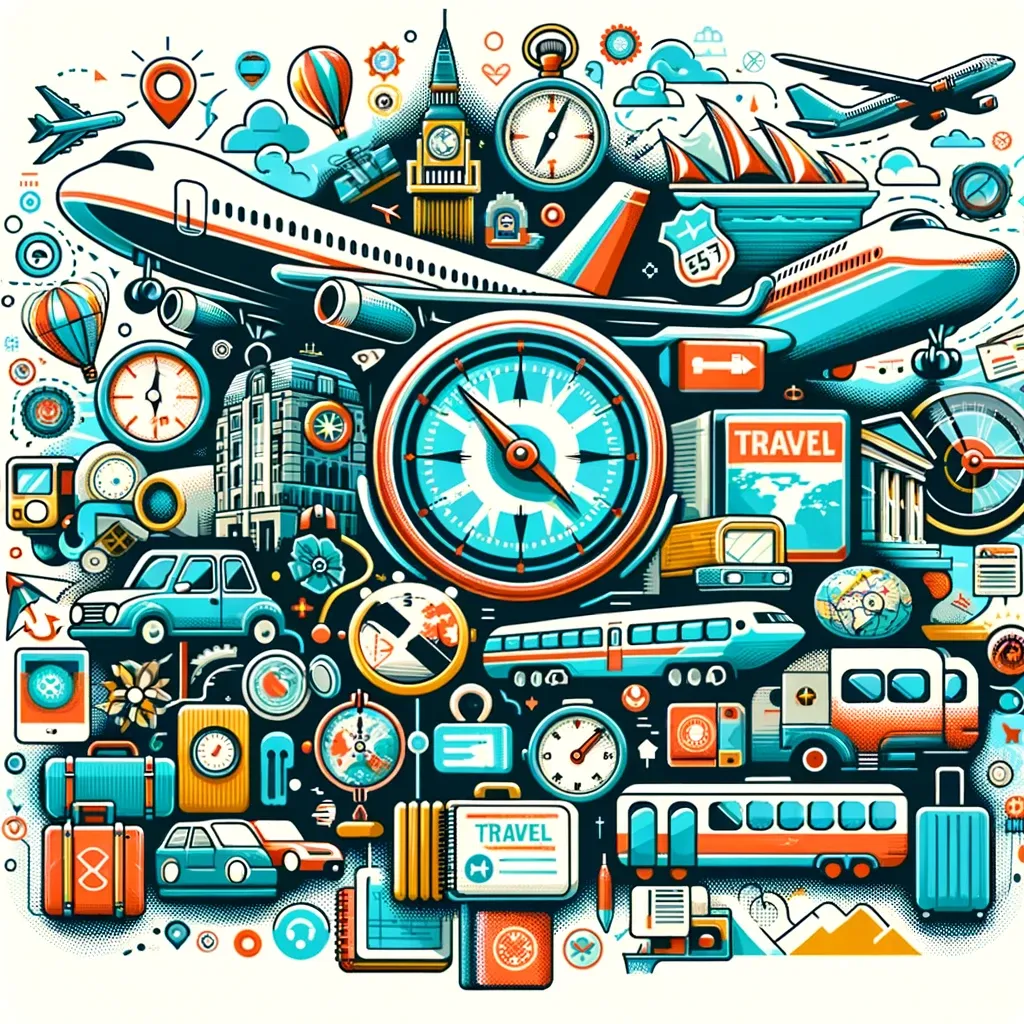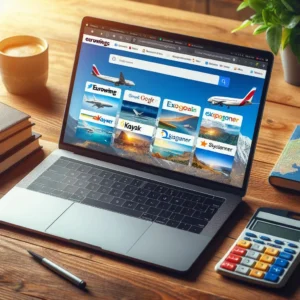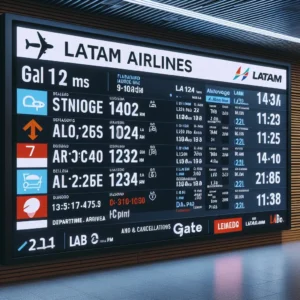Travel Transportation Guide
Traveling can be a great way to see the world and experience new cultures. However, it can also be a lot of work, especially if you’re not familiar with the transportation options available. This guide will help you plan your next trip by providing information on different transportation options, tips for getting around, and advice on how to make your trip as smooth as possible.
Transportation Options
There are a variety of transportation options available for travelers, each with its own advantages and disadvantages. The best option for you will depend on your budget, travel style, and destination.
- Air travel is the fastest way to travel long distances. However, it can be expensive, and you may have to deal with long security lines and delays.
- Train travel is a more scenic option than air travel, and it can be more affordable. However, it can take longer to travel by train, and you may have to make connections.
- Bus travel is the most affordable option, but it can be the slowest. However, it can be a good option if you’re on a tight budget and don’t mind taking your time.
- Car travel is a good option if you want to have more flexibility and control over your itinerary. However, it can be expensive, and you may have to deal with traffic and parking.
- Ridesharing is a relatively new option that can be a good compromise between cost and convenience. However, it can be difficult to find a rideshare that matches your schedule and destination.
Once you’ve decided on a transportation option, you’ll need to book your tickets. You can do this online, at the airport or train station, or through a travel agent.
Tips for Getting Around
Once you’re at your destination, you’ll need to figure out how to get around. Here are a few tips:
- Download a map of the city. This will help you get your bearings and find your way around.
- Ask for directions. If you’re lost, don’t be afraid to ask for help from locals.
- Use public transportation. Public transportation is a great way to get around cities without having to worry about traffic or parking.
- Take a taxi or rideshare. If you’re in a hurry, a taxi or rideshare can be a good option.
- Rent a car. If you want to have more flexibility and control over your itinerary, renting a car can be a good option.
Advice for Making Your Trip Smoother
Here are a few tips for making your trip smoother:
- Plan ahead. The more you plan ahead, the less likely you are to run into problems.
- Pack light. You don’t want to have to carry around a lot of luggage.
- Be flexible. Things don’t always go according to plan, so be prepared to be flexible.
- Stay safe. Be aware of your surroundings and take precautions to stay safe.
- Enjoy yourself! Traveling is a great way to see the world and experience new things.
By following these tips, you can make your next trip a smooth and enjoyable experience.
Travel Transportation Tips
Here are some tips for traveling and getting around:
- Plan your trip in advance. This will help you avoid any surprises and make the most of your time.
- Book your flights and accommodations early. This will get you the best prices and ensure that you have a place to stay when you arrive.
- Get a travel insurance policy. This will protect you in case of any unexpected expenses, such as medical bills or lost luggage.
- Learn about the local culture and customs. This will help you avoid any misunderstandings and make a good impression on your hosts.
- Pack light. You don’t need to bring everything you own. Just pack the essentials and you’ll be fine.
- Stay hydrated. Drink plenty of water, especially when you’re in a hot climate.
- Be aware of your surroundings. Keep your belongings close to you and don’t leave them unattended.
- Use common sense. Don’t do anything that you wouldn’t do at home.
By following these tips, you can have a safe and enjoyable trip.
FAQ
Q: What is the best way to get around a new city?
A: There are many different ways to get around a new city. You can take public transportation, such as the bus, subway, or train. You can also rent a car or bike. If you’re staying in a central location, you may be able to get around on foot or by using ride-sharing apps.
Q: What should I do if I get lost?
A: If you get lost, don’t panic. First, try to find a landmark or a person who can help you. You can also ask for directions at a tourist information center or at a hotel or restaurant. If you’re really lost, you can call a taxi or an Uber.
Q: What should I do if I have a medical emergency?
A: If you have a medical emergency, call 911 or the local emergency number. You can also go to a hospital or clinic. If you’re not sure where to go, ask for help at a hotel or restaurant.
Q: What should I do if I lose my passport?
A: If you lose your passport, you should report it to the local authorities. You can also contact your embassy or consulate. You will need to get a new passport before you can travel home.
Q: What should I do if I’m robbed or assaulted?
A: If you’re robbed or assaulted, you should report it to the local authorities. You can also contact your embassy or consulate. You should take steps to protect yourself, such as staying in well-lit areas and avoiding walking alone at night.
By following these tips, you can have a safe and enjoyable trip.
Travel Transportation Information
Travel transportation information is essential for planning a successful trip. It can help you find the best way to get from one place to another, and it can also help you save money on your travel expenses.
Here are some of the most important travel transportation information to know:
- The different types of transportation available
- The cost of each type of transportation
- The time it takes to travel between different destinations
- The best times to travel
- The most convenient ways to travel
By knowing this information, you can make informed decisions about how to travel and you can avoid any unexpected surprises.
Here is a more detailed look at each of these factors:
The different types of transportation available
There are many different types of transportation available, each with its own advantages and disadvantages. The most common types of transportation include:
- Air travel
- Rail travel
- Bus travel
- Car travel
- Boat travel
Each type of transportation has its own unique benefits and drawbacks. For example, air travel is the fastest way to get from one place to another, but it can also be the most expensive. Rail travel is slower than air travel, but it is often more affordable. Bus travel is the most affordable option, but it can also be the slowest. Car travel is the most flexible option, but it can also be the most expensive. Boat travel is the most scenic option, but it can also be the most time-consuming.
The cost of each type of transportation
The cost of each type of transportation varies depending on a number of factors, including the distance you are traveling, the time of year you are traveling, and the type of transportation you choose. In general, air travel is the most expensive type of transportation, followed by rail travel, bus travel, car travel, and boat travel. However, there are often ways to save money on your travel expenses, such as by booking your tickets in advance, flying during off-peak times, or using a travel rewards credit card.
The time it takes to travel between different destinations
The time it takes to travel between different destinations also varies depending on the type of transportation you choose. Air travel is the fastest way to get from one place to another, but it can also be the most expensive. Rail travel is slower than air travel, but it is often more affordable. Bus travel is the most affordable option, but it can also be the slowest. Car travel is the most flexible option, but it can also be the most time-consuming. Boat travel is the most scenic option, but it can also be the most time-consuming.
The best times to travel
The best time to travel depends on a number of factors, including your budget, your travel preferences, and the time of year you are traveling. In general, the best time to travel is during the off-season, when prices are lower and crowds are smaller. However, there are also some advantages to traveling during the peak season, such as having more options available and better weather.
The most convenient ways to travel
The most convenient way to travel depends on a number of factors, including your budget, your travel preferences, and the time of year you are traveling. In general, the most convenient way to travel is by air, followed by rail travel, bus travel, car travel, and boat travel. However, there are often other factors to consider, such as the amount of luggage you are carrying, the number of people you are traveling with, and the distance you are traveling.
By considering all of these factors, you can make informed decisions about how to travel and you can avoid any unexpected surprises.
Travel Transportation Advice
Traveling can be a great way to see the world and experience new things. However, it can also be stressful and expensive. Here are some tips to help you make your trip more enjoyable and affordable:
- Plan your trip in advance. This will help you avoid any surprises and make the most of your time.
- Do your research. Find out what you want to see and do, and make a list of places you want to visit.
- Book your flights and accommodation well in advance. This will save you money and ensure that you get the best deals.
- Pack light. You don’t need to bring everything you own. Pack only the essentials and leave the rest at home.
- Be prepared for delays. Flights and trains can be delayed, so it’s important to be prepared for this.
- Stay safe. Be aware of your surroundings and take precautions to protect yourself from theft and other crimes.
- Have fun! Traveling is a great way to relax and explore new places. Enjoy your trip!
Here are some additional tips for specific types of travel:
- For international travel, make sure you have a valid passport and visa, if required.
- For long-distance travel, consider flying instead of driving. This will save you time and money.
- For budget travel, stay in hostels or guesthouses instead of hotels. This will save you money and allow you to meet other travelers.
- For solo travel, be aware of your surroundings and take precautions to protect yourself.
- For family travel, pack activities that everyone will enjoy and make sure to have a plan for dealing with tantrums and meltdowns.
With a little planning and preparation, you can have a safe and enjoyable travel experience.
Travel Transportation Planning
Travel transportation planning is an important part of any trip. It can help you save money, time, and stress. Here are some tips for planning your travel transportation:
- Start planning your transportation early. This will give you plenty of time to research your options and find the best deals.
- Consider all of your options. There are many different ways to get from one place to another, so it’s important to compare your options and choose the one that is best for you.
- Book your transportation in advance. This will help you guarantee your spot and get the best rates.
- Be flexible with your travel plans. Things can change, so it’s important to be flexible with your travel plans in case of delays or cancellations.
- Budget for your transportation costs. This will help you stay on track with your travel budget.
Here are some specific tips for planning your travel transportation by different modes of transportation:
- Air travel: When booking air travel, consider the following factors:
- Airline: There are many different airlines to choose from, so it’s important to compare your options and choose the one that offers the best price and service.
- Flight time: The flight time can vary significantly depending on the airline and the route.
- Airport: The airport you choose can also affect the cost of your flight.
- Train travel: When booking train travel, consider the following factors:
- Train company: There are many different train companies to choose from, so it’s important to compare your options and choose the one that offers the best price and service.
- Train type: The type of train you choose can also affect the cost of your trip.
- Train route: The train route you choose can also affect the cost of your trip.
- Bus travel: When booking bus travel, consider the following factors:
- Bus company: There are many different bus companies to choose from, so it’s important to compare your options and choose the one that offers the best price and service.
- Bus type: The type of bus you choose can also affect the cost of your trip.
- Bus route: The bus route you choose can also affect the cost of your trip.
- Car rental: When renting a car, consider the following factors:
- Car rental company: There are many different car rental companies to choose from, so it’s important to compare your options and choose the one that offers the best price and service.
- Car type: The type of car you choose can also affect the cost of your rental.
- Car insurance: Car insurance is not always included in the rental price, so it’s important to make sure you have the right coverage.
By following these tips, you can save money, time, and stress on your next trip.
Travel Transportation Booking
Traveling can be an exciting experience, but it can also be stressful. One of the most stressful parts of traveling is booking transportation. There are so many different options to choose from, and it can be hard to know which one is the best for you.
To help you make the best decision, we’ve put together this guide on travel transportation booking. We’ll cover everything you need to know, from choosing the right type of transportation to finding the best deals.
So whether you’re flying, driving, taking the train, or taking a bus, read on for all the information you need to book your next trip.
Choosing the Right Type of Transportation
The first step in booking your transportation is to choose the right type of transportation for your trip. There are a few factors to consider when making this decision, including:
- Your budget
- Your time constraints
- Your travel preferences
If you’re on a tight budget, you’ll probably want to consider taking public transportation or driving. If you’re short on time, flying or taking the train may be a better option. And if you’re looking for a more leisurely experience, taking a bus or taking a cruise may be a good choice.
Once you’ve considered your budget, time constraints, and travel preferences, you can start to narrow down your options. Here are some of the most popular types of transportation for travelers:
- Flying
- Driving
- Taking the train
- Taking the bus
- Taking a cruise
Each type of transportation has its own advantages and disadvantages. For example, flying is the fastest way to travel, but it can also be the most expensive. Driving is a more affordable option, but it can take longer than flying. Taking the train is a good option for travelers who want to see the countryside, but it can be less convenient than flying or driving. Taking the bus is a budget-friendly option, but it can be the most time-consuming. And taking a cruise is a great way to relax and enjoy the scenery, but it can be the most expensive option.
Ultimately, the best way to choose the right type of transportation is to consider your individual needs and preferences.
Finding the Best Deals
Once you’ve chosen the right type of transportation for your trip, it’s time to start looking for the best deals. There are a few different ways to do this, including:
- Using a travel agent
- Booking online
- Searching for discounts
Using a travel agent can be a great way to find the best deals on transportation. Travel agents have access to a wide range of deals that you may not be able to find on your own. They can also help you book your transportation and make sure that you have a smooth trip.
Booking online is another great way to find the best deals on transportation. There are a number of websites that offer discounts on flights, trains, buses, and cruises. You can also find discounts on transportation by searching for coupons or promo codes.
Finally, you can also search for discounts on transportation by contacting the transportation company directly. Many companies offer discounts to students, seniors, or military members.
By following these tips, you can find the best deals on transportation for your next trip.
FAQs
- What is the best way to book transportation?
- How can I find the best deals on transportation?
- What are the different types of transportation available?
- What are the advantages and disadvantages of each type of transportation?
- How can I make sure that I have a smooth trip?
Conclusion
Traveling can be an amazing experience, but it can also be stressful. By following these tips, you can make the process
Travel Transportation Insurance
Travel insurance is a type of insurance that provides coverage for medical expenses, trip cancellations, lost luggage, and other travel-related incidents. It is important to have travel insurance in place before you travel, as it can help to protect you from financial loss in the event of an emergency.
There are a number of different types of travel insurance policies available, so it is important to choose one that is right for your needs. Some of the factors you may want to consider when choosing a policy include:
- The cost of the policy
- The coverage limits
- The deductible
- The exclusions
- The claims process
Once you have chosen a policy, it is important to read the fine print carefully so that you understand what is covered and what is not. You should also make sure that you have the policy in place before you travel, as most policies will not cover claims that are made after the policy has been purchased.
Travel insurance can provide peace of mind and help to protect you from financial loss in the event of an emergency. It is important to choose a policy that is right for your needs and to read the fine print carefully before you travel.
Benefits of Travel Insurance
There are a number of benefits to having travel insurance, including:
- Medical coverage
- Trip cancellation coverage
- Lost luggage coverage
- Emergency evacuation coverage
- Personal liability coverage
Medical coverage can help to pay for medical expenses that you incur while traveling, such as doctor’s visits, hospital stays, and prescription drugs. Trip cancellation coverage can help to reimburse you for the cost of your trip if you have to cancel your trip due to a covered reason, such as illness, injury, or death. Lost luggage coverage can help to replace your lost luggage if it is stolen or damaged while you are traveling. Emergency evacuation coverage can help to pay for the cost of your evacuation if you become ill or injured while traveling and need to be transported home. Personal liability coverage can help to protect you from liability if you are sued for an injury or accident that you cause while traveling.
Travel insurance can provide peace of mind and help to protect you from financial loss in the event of an emergency. It is important to choose a policy that is right for your needs and to read the fine print carefully before you travel.
Types of Travel Insurance Policies
There are a number of different types of travel insurance policies available, so it is important to choose one that is right for your needs. Some of the most common types of travel insurance policies include:
- Basic coverage
- Comprehensive coverage
- Cancel for any reason (CFAR) coverage
- Trip interruption coverage
- Medical evacuation coverage
Basic coverage is the most affordable type of travel insurance policy and typically provides coverage for medical expenses, trip cancellations, and lost luggage. Comprehensive coverage is a more comprehensive type of policy that typically provides coverage for all of the benefits that are included in basic coverage, plus additional benefits such as personal liability coverage and emergency evacuation coverage. Cancel for any reason (CFAR) coverage allows you to cancel your trip for any reason and receive a full refund of your trip cost, minus any applicable fees. Trip interruption coverage provides coverage for the cost of your trip if you have to interrupt your trip due to a covered reason, such as illness, injury, or death. Medical evacuation coverage provides coverage for the cost of your evacuation if you become ill or injured while traveling and need to be transported home.
It is important to choose a travel insurance policy that is right for your needs and to read the fine print carefully before you travel.
How to Choose the Right Travel Insurance Policy
There are a number of factors to consider when choosing a travel insurance policy, including:
- The cost of the policy
- The coverage limits
- The deductible
- The exclusions
- The claims process
The cost of the policy is an important factor to consider, as you want to make sure that you are getting
Travel Transportation Security
Traveling can be a great way to see the world and experience new cultures, but it can also be a time when you are at risk of being robbed, assaulted, or even kidnapped. By taking some simple precautions, you can help to keep yourself safe and secure while traveling.
Here are some tips for staying safe while traveling:
- Be aware of your surroundings at all times. This means being aware of who is around you, what is going on around you, and where you are.
- Avoid walking alone in dark or deserted areas. If you must walk alone, stay in well-lit areas and be aware of your surroundings.
- Keep your valuables close to you. Don’t leave your purse, wallet, or other valuables unattended.
- Be careful about what you drink and eat when you are traveling. Be sure to drink only bottled water and avoid food that has been left out in the open.
- If you are approached by someone who you think is suspicious, trust your instincts and walk away.
- If you are ever in danger, don’t hesitate to call for help.
In addition to these general tips, there are also some specific things you can do to stay safe in different parts of the world. For example, in some countries, it is important to be aware of the local laws and customs regarding dress and behavior. In other countries, it is important to be aware of the risk of terrorism or political unrest.
By taking some simple precautions, you can help to keep yourself safe and secure while traveling. Here are some additional tips for staying safe in specific parts of the world:
- In Europe, be aware of the risk of pickpockets and petty theft. Keep your valuables close to you and be careful about what you leave unattended.
- In Asia, be aware of the risk of scams and fraud. Be careful about who you talk to and what you agree to.
- In Africa, be aware of the risk of crime and violence. Avoid walking alone in dark or deserted areas.
- In South America, be aware of the risk of kidnapping and extortion. Be careful about who you talk to and what you agree to.
- In North America, be aware of the risk of gun violence. Be careful about where you go and who you are with.
By taking some simple precautions, you can help to keep yourself safe and secure while traveling. For more information on staying safe while traveling, please visit the following websites:
- U.S. Department of State Travel Advisories
- TripSavvy: Tips for Staying Safe While Traveling
- Lonely Planet: Travel Safety Tips
Travel Transportation Packing
Packing for a trip can be a daunting task, but it doesn’t have to be. By following a few simple tips, you can make sure that you have everything you need for your trip without overpacking.
First, start by making a list of everything you need for your trip. This will help you to stay organized and avoid forgetting anything important. Be sure to include items such as clothing, toiletries, medications, and any other essential items.
Once you have made a list, you can start to pack your bags. When packing, it is important to be organized and efficient. Pack your clothes in layers, so that you can easily mix and match them as needed. Also, be sure to pack light, so that you don’t have to lug around a heavy bag.
Here are a few additional tips for packing for a trip:
- Roll your clothes instead of folding them, to save space.
- Use packing cubes to keep your clothes organized.
- Pack a few versatile pieces of clothing that can be worn in multiple ways.
- Pack comfortable shoes that you can walk in all day long.
- Don’t forget your toiletries, medications, and any other essential items.
By following these tips, you can make sure that you are prepared for your trip and that you have everything you need.
Travel Transportation Etiquette
Traveling can be a great way to see the world and experience new cultures. However, it is important to be aware of the local customs and etiquette when traveling to a new country. By following a few simple tips, you can avoid any embarrassing or uncomfortable situations.
Here are a few tips for travel etiquette:
- Be respectful of the local culture and customs.
- Learn a few basic phrases in the local language.
- Be polite and courteous to everyone you meet.
- Dress appropriately for the occasion.
- Be aware of your surroundings and be respectful of other people’s privacy.
By following these tips, you can make sure that you have a positive and respectful experience when traveling to a new country.
Discover the Best Transportation Services and Tips
When it comes to premium transportation services,
FoxLimousineWorldwide
stands out as a top choice, particularly in the Denver area. Their exceptional
Denver limousine service offers both luxury and reliability, ensuring that
every journey is as comfortable as it is memorable. Whether you’re looking
for airport transfers, corporate travel, or a stylish ride for special occasions,
Fox Limousine Worldwide tailors its services to meet your unique needs. Alongside
their top-tier fleet, they provide insightful tips and advice to make your travel
experience smooth and stress-free. For those in search of a blend of elegance
and efficiency, Fox Limousine Worldwide is the ultimate transportation solution.




